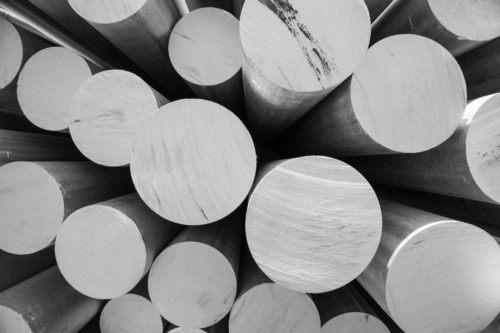Aluminum Alloy Types and Characteristics
Aluminum die casting is a popular manufacturing process for quickly producing identical metal parts at high volumes. It is also a versatile and cost-effective method to produce parts with customizable finishes.
In die casting, molten metal is ejected at high speeds and high pressures into a die. Aluminum is an excellent material choice for this production method because it is easily workable and imbues the finished part with positive characteristics. Learn more about the most popular types of aluminum alloys, their most valuable characteristics, and common applications for aluminum die-cast parts.
Manufacturers often prefer aluminum alloys for producing strong yet lightweight metal parts at high volumes. Some of the most valuable characteristics of aluminum alloys include the following:
- Cost-effectiveness: Aluminum alloys are affordable and highly accessible. Even specialty alloys with added strength, resistance to damage, and other added features are cost-effective to acquire and use.
- Sustainability: Aluminum is recyclable. Manufacturers can repurpose used aluminum parts to create new components. They can also collect excess material around the castings and remelt them. This recyclability and sustainability reduce the environmental impact of every aluminum production project.
- Durability: Despite its lightweight nature, aluminum is very durable. The material is corrosion-resistant, heat-resistant, strong against physical damage, and can hold complex or intricate shapes.
Almost all aluminum alloys share these characteristics, but different alloys also have specialized features that make them appealing for specific projects. Some of the most popular aluminum alloys are:
- Aluminum Alloy A380: This lightweight, moderately corrosion-resistant alloy is used to build chassis, automotive parts, consumer goods, and other parts for high-heat applications. It can hold a variety of different shapes and surface finishes for different applications.
- Aluminum Alloy A383: Also called ADC12, this aluminum alloy is a popular choice for extremely intricate configurations because it responds so well to casting. Compared to A380, A383 is less durable but stronger and more resistant to cracking in high heat.
- Aluminum Alloy A360: A360 is built for industrial components. It has excellent fluidity and high-pressure resistance. Although it is harder to cast than A380, this alloy gives components good corrosion resistance and strength, including tensile strength, yield strength, and shear strength.
- Aluminum Alloy A413: This is the ideal metal for hydraulic cylinders and other highly pressurized parts. It’s also a top choice for intricate components and cold chamber die casting.
Applications of Aluminum Alloy Die Casting
Aluminum alloy die casting is a popular option for creating high-volume, dimensionally stable components across multiple industries. It’s important to work with a knowledgeable manufacturer that can help you determine the best aluminum alloy for your project. These are three of the most common applications for these parts.
Automotive Industry
Vehicles need strong, lightweight components that won’t break down despite exposure to high heat levels and potentially corrosive chemicals. Increasingly fuel-efficient cars and electric vehicles rely even more on these light, durable parts. Die casting can be used to create virtually identical chassis, engine components, and more.
Infrastructure Equipment
Because aluminum is thermally conductive, it’s commonly used for parts that need to offer a high degree of heat dissipation, such as networking and infrastructure components.
Handheld Device Components
Consumer goods and electronic devices also benefit from aluminum die casting, which can produce frames, structural elements, and intricate parts within the circuitry and controls.
Aluminum Alloy Die Casting from DyCast Specialties
At DyCast Specialties Corporation, we specialize in creating high-quality die-cast products from aluminum, zinc, and other metal alloys. We offer die casting services, engineering support, finishing services, in-house inspections, and more. Contact us today to learn more about our aluminum alloy die casting capabilities, or request a quote for custom pricing details.


Comments are closed